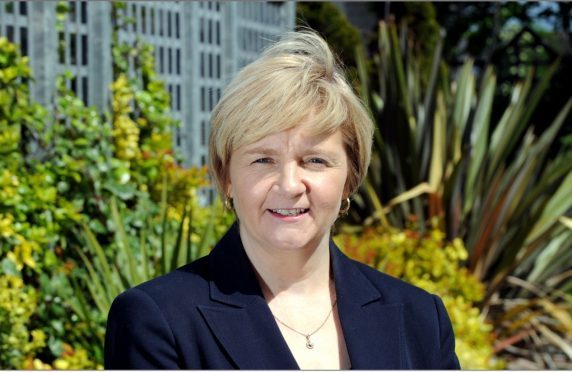The leader of Aberdeen City Council is urging First Minister Nicola Sturgeon to give the local authority control over its property and business taxes – claiming it could lead to a £200million boost in revenue.
Jenny Laing is calling on the government to devolve non-domestic rates and council tax levels to the local authority.
She also wants a legally-binding agreement over the funding of £254million for infrastructure projects in Aberdeen.
In a letter to the Scottish Government, she said that while the commitment of £250million city deal from the UK and Scottish Governments was welcome, the second set of funding promised was not guaranteed.
Her letter said: “While the City Region Deal package is bound by the heads of terms legal agreement, the second financial commitment is not.
“I feel that without a formal heads of terms legal agreement, the city is potentially exposed.”
Mrs Laing goes on to say that the strength of the city’s economy warrants greater autonomy.
“Aberdeen City Council is formally requesting that we are given control of non-domestic rates, and council tax levels,” she said.
“If we had this power, we could potentially raise hundreds of millions a year.
“The Aberdeen economy has, for decades, consistently outperformed other British cities, and this, I believe, strengthens our case for new locally-devolved powers.
“Aberdeen City Council would channel the additional income into infrastructure projects, specifically the devolved areas of housing and transport.”
Last night, finance chief Willie Young said the move was necessary to get infrastructure built.
He said: “Projects relating to the city deal will never get done without money.
“It we devolve business rates and council tax and introduce a form of tourist tax for hotels like there is in Edinburgh we will promise to invest in infrastructure projects.”
A Scottish Government spokesman insisted that the local authority already had significant autonomy on these matters.
He said: “In addition to our £125million contribution to the city deal, we have decided to invest an additional £254million in key infrastructure in the north-east to cement Aberdeen as one of the world’s leading cities for business and industry.
“Aberdeen City Council already has the power to reduce business rates.
“Scottish councils already retain all the non-domestic rates income they collect.”
